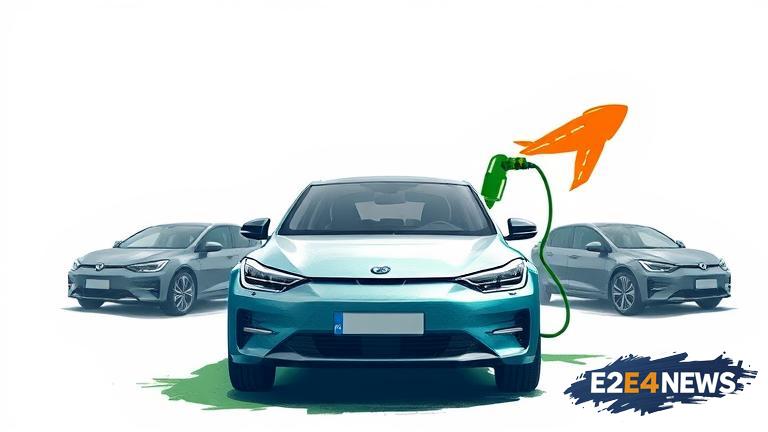The Indian government has announced a comprehensive plan to promote the adoption of electric vehicles (EVs) in the country. The plan includes a range of incentives and initiatives aimed at encouraging the use of EVs, reducing greenhouse gas emissions, and improving air quality. According to reports, the government plans to offer subsidies to EV manufacturers, as well as to consumers who purchase EVs. The subsidies are expected to be in the form of tax exemptions, reduced registration fees, and other benefits. Additionally, the government plans to invest in the development of EV charging infrastructure, including the installation of charging stations along highways and in urban areas. The plan also includes measures to promote the use of EVs in public transportation, such as buses and taxis. The government has set a target of having at least 30% of new vehicle sales be electric by 2030. To achieve this goal, the government plans to work with state governments, industry stakeholders, and other organizations to create a supportive ecosystem for EVs. The plan also includes initiatives to promote research and development in the field of EVs, as well as to develop skilled workforce to support the industry. The government has also announced plans to establish a national EV policy, which will provide a framework for the development of the EV industry in the country. The policy is expected to include measures such as tax incentives, investment in infrastructure, and regulations to support the growth of the industry. The government has also announced plans to promote the use of EVs in rural areas, where they can help reduce emissions and improve air quality. The plan includes initiatives such as the installation of solar-powered charging stations and the promotion of EV-based transportation services. The government has also announced plans to work with international organizations and countries to learn from their experiences and best practices in promoting EVs. The plan is expected to have a significant impact on the environment, as EVs produce zero tailpipe emissions and can help reduce greenhouse gas emissions. The plan is also expected to have economic benefits, as it can help reduce the country’s dependence on fossil fuels and create new job opportunities in the EV industry. The government has announced that it will work with industry stakeholders to develop a roadmap for the implementation of the plan, which will include timelines, milestones, and key performance indicators. The plan is expected to be implemented in phases, with the first phase focusing on the development of EV charging infrastructure and the promotion of EVs in public transportation. The government has also announced plans to establish a national EV registry, which will provide data and insights on EV adoption and usage patterns. The registry will help the government track progress towards its targets and make data-driven decisions to support the growth of the industry. The plan has been welcomed by industry stakeholders, who see it as a major step forward in promoting the adoption of EVs in the country. The plan is expected to have a significant impact on the automotive industry, as it can help drive growth and innovation in the sector. The government has announced that it will continue to monitor and evaluate the progress of the plan, and make adjustments as needed to ensure its success.
